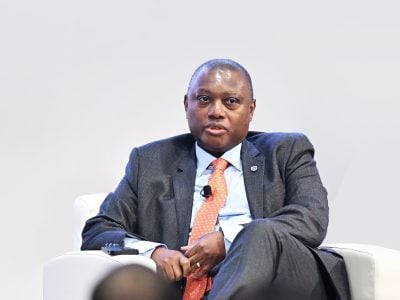Artificial intelligence (AI) and emerging technologies, such as the internet of things (IoT) and big data analytics, are rapidly evolving, with the potential to transform society and the economy. In Africa, these innovations promise to drive economic growth by boosting productivity, creating new jobs and business opportunities – particularly for young people – and improving citizen’s access to information, fostering more intelligent and dynamic economies.
AI and emerging technologies are projected to contribute around $1.5 trillion to Africa’s GDP by 2030, driving transformative changes across various sectors. These technologies can enhance agricultural productivity through precision farming, improve the efficiency and responsiveness of government services, expand access to quality healthcare, support environmental sustainability, and revolutionize education through personalized learning. Such advancements are essential for accelerating Africa’s development and fostering sustainable growth.
With a strategic and inclusive approach, African countries can leverage AI and emerging technologies as transformative tools to drive sustainable development and improve the quality of life across the continent. However, to fully realise their potential, it is essential to address several critical challenges.
Accelerating digital inclusion
As of 2023, only about 37% of Africa’s population had access to the internet. Despite this, the continent faces some of the highest fixed broadband costs globally, averaging 14.8% of gross national income (GNI) – far exceeding the International Telecommunication Union’s (ITU) recommended benchmark of 2%. These high costs remain a significant barrier to digital inclusion, particularly in low-income and rural areas.
As a result, mobile connectivity has become the primary means of accessing the internet in Africa. By 2023, mobile penetration in sub-Saharan Africa stood at 46%, while mobile internet penetration lagged at just 25%, despite mobile broadband coverage reaching 85% of the region. Several factors hinder mobile internet adoption, including affordability – smartphones can cost up to 95% of the monthly income for the poorest 20% – a lack of digital skills, insufficient locally relevant content and language barriers, given that approximately 2,000 languages are spoken in Africa.
The most critical challenge, however, is access to electricity. Currently, only about 43% of Africans have reliable access to electricity, and in some countries, frequent power outages exacerbate the issue. This lack of consistent energy supply poses a significant obstacle to digital inclusion and the adoption of advanced technologies. Moreover, AI-specific workloads are expected to further strain energy resources due to the rapid growth of data centres and escalating computing demands. For example, generative AI systems already consume approximately 33 times more energy to complete a task compared to task-specific software.
It is estimated that $400bn will be required to improve electricity transmission and distribution across Africa by 2050. Without this critical investment, many countries in the region will lack the necessary baseload electricity to fully benefit from emerging technologies. Considering the existing infrastructure challenges and high broadband costs, mobile-based AI solutions present a practical avenue for leveraging AI’s potential.
With smartphone penetration projected to reach 88% by 2030, mobile-based edge computing is poised to play a pivotal role in expanding AI capabilities and accessibility across the continent. Public-private partnerships will be key to achieving digital inclusion. For example, the EDISON Alliance has connected over 1 billion people globally to essential digital services like healthcare, education and finance through a network of 200+ partners in over 100 countries.
Addressing Africa’s digital infrastructure
To fully leverage AI and emerging technologies, Africa must significantly expand its data centre capacity to store and process the large volumes of data these technologies require. Currently, the continent accounts for less than 1% of global capacity, despite housing 18% of the world’s population. With only around 150 data centres across the region – primarily concentrated in South Africa, Nigeria and Kenya – analysts estimate that at least 700 additional data centres will be needed to meet Africa’s growing connectivity and data storage demands over the medium term.
Additionally, significant investments in high-performance computing infrastructure, such as supercomputers, will be essential for Africa to fully realize the potential of AI and emerging technologies. Supercomputers are critical because they provide the immense computational power needed for advanced AI applications, particularly deep learning models. Developing this infrastructure will be key to advancing AI innovation and supporting technological growth across the continent.
Africa’s supercomputing capacity, while currently limited, is steadily growing. The continent hosts a few notable supercomputers, such as “Toubkal” in Morocco, the most powerful in Africa, and “Lengau” in South Africa, which was previously the fastest system on the continent. South Africa’s collaboration with Dell Technologies to build the Lengau supercomputer highlights the potential of public-private partnerships in advancing high-performance computing. Similar collaborations with global technology firms, including leasing access to their supercomputers and utilizing cloud platforms they offer, will be critical for scaling access to computational resources across the continent.
Mitigating risks and biases related to AI and emerging technologies
AI regulation in Africa is still in its early stages, but there is growing momentum at both national and continental levels to establish strategies and frameworks for ethical and beneficial AI development. In February 2024, the African Union released a draft AI policy to serve as a blueprint for its member states. The policy encourages countries without existing AI strategies to adopt it as a foundation and advises those with established policies to align with its principles.
Key focus areas in existing and emerging African AI strategies include fostering local AI talent and capabilities, attracting foreign investment and partnerships, ensuring ethical and responsible AI development, and leveraging AI to address local challenges while driving economic growth. These efforts aim to position Africa as a global player in the AI space while ensuring its development benefits all citizens equitably.
However, AI has the potential to exacerbate and expand the digital divide if not managed responsibly. These systems are trained on historical data, which often reflects societal biases and disparities: Africa contributes less than 1% of the total content on the internet, further limiting the representation of diverse perspectives in AI training datasets. Without intentional design and continuous monitoring, these biases can be reinforced and even amplified, leading to discriminatory outcomes that disproportionately affect communities across the continent.
Finally, as AI continues to automate more tasks, it poses a significant risk to low-skilled workers and those in routine jobs. This risk is particularly acute in Africa, where, according to the African Development Bank (AfDB), nearly 60% of the workforce is engaged in low-skilled jobs, while only 10% occupy high-skilled roles – the lowest percentage globally. This disparity underscores the region’s heightened vulnerability to job displacement and the need for proactive measures to reskill and upskill workers.
Africa stands on the cusp of transformative socioeconomic growth through the adoption of AI and emerging technologies. The private sector has a pivotal role to play in driving this transformation, ensuring these technologies foster inclusive development and equitable progress.
Want to continue reading? Subscribe today.
You've read all your free articles for this month! Subscribe now to enjoy full access to our content.
Digital Monthly
£8.00 / month
Receive full unlimited access to our articles, opinions, podcasts and more.
Digital Yearly
£70.00 / year
Our best value offer - save £26 and gain access to all of our digital content for an entire year!

 Sign in with Google
Sign in with Google 



